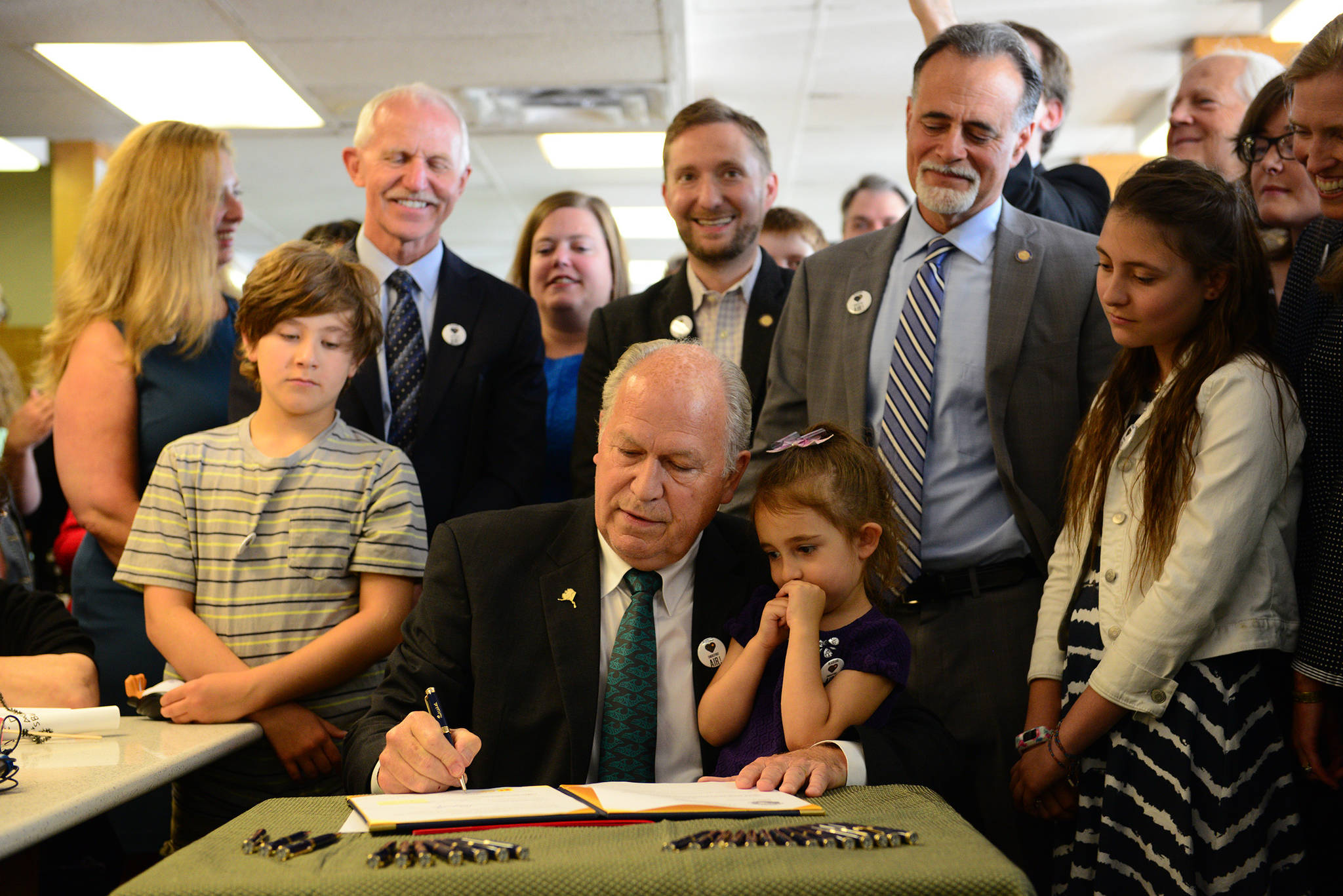Starting Oct. 1, smokers must take it outside.
In a Tuesday ceremony at Anchorage’s Lucky Wishbone restaurant, Gov. Bill Walker signed Senate Bill 63, a statewide ban on indoor public smoking that mirrors local laws in Bethel, Juneau, Anchorage and other Alaska cities.
According to information provided to the Alaska Legislature earlier this year, about half of Alaskans already live in locations that prohibit indoor public smoking. SB 63 extends the ban to the rest of the state’s residents.
“I’ve never had a more interesting gathering at a bill signing,” Walker said to the dozens of people who were assembled to watch him put pen to paper.
“It’s a very momentous bill,” he said.
The ban covers tobacco and marijuana smoking as well as e-cigarette use in public spaces such as bars, restaurants, stores, taxis and buses.
Sen. Peter Micciche, R-Soldotna and the bill’s prime sponsor, repeatedly referred to it as the “take it outside act” when discussing it during Legislative sessions.
Walker said he chose the Lucky Wishbone for the precedent it set in April 1990, when it became the first restaurant in Anchorage to go fully non-smoking.
At the time, the decision even divided owners George and Peggy Brown, who had opened the restaurant in 1955.
Peggy opposed the move, but she gave George 60 days to prove it could work. If business declined too much, the ban would go away.
As Walker told the audience Tuesday, it did decline — and fairly significantly.
That changed when George ran an ad in the Anchorage Times about the ban. The next day, the line was around the block, Walker recalled.
“Young families started coming in, and people felt secure in their breathing and not having to tolerate the smoke of others,” Pat Heller, the Browns’ daughter, said during the ceremony.
George and Peggy have since died, but the ban has stayed in place since 1990.
“It was a very positive move, and we thank my mom and dad, and thank you governor, senator, and all of you who worked so hard on this. It will be a very positive thing for the state of Alaska,” Heller said.
It took six years for Micciche to bring it to signing day. The bill was hotly opposed, particularly by Rep. Gabrielle LeDoux, R-Anchorage, who blocked its advance for four of those six years.
“In six years, it was easy — piece of cake,” Micciche joked. “It just took us some time to wear them out.”
LeDoux did win some concessions before the bill left the Legislature. Most importantly, the ban includes an opt-out clause: A community can allow smoking in bars and restaurants if approved by a vote of the community’s residents.
It also allows e-cigarette stores and marijuana stores to allow on-site smoking if they have separate ventilation systems for smoking rooms.
Micciche said the bill isn’t “just the heavy hand of government … slamming down” but is about the health of workers who might otherwise be required to work in smoky environments.
Micciche held his daughter Stella as he spoke, and briefly bounced her on his hip.
“It’s for the future,” he said.
• Contact reporter James Brooks at jbrooks@juneauempire.com or 523-2258.

